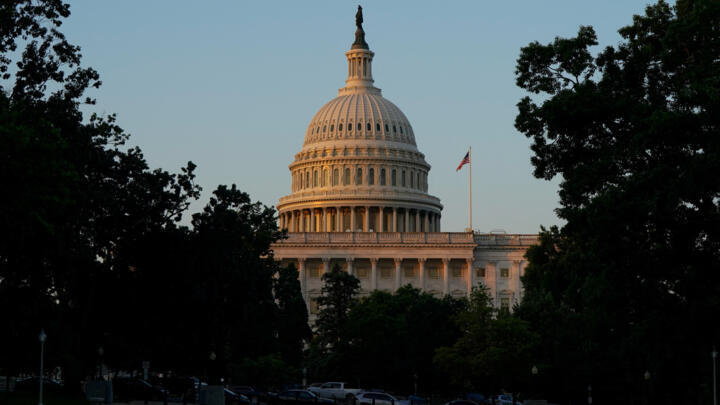The U.S. Senate entered a heated weekend debate over former President Donald Trump’s controversial “One Big Beautiful Bill” — a sweeping $4.5 trillion proposal aimed at extending tax cuts, boosting border security, and slashing social welfare programs.
The bill, a central pillar of Trump’s domestic agenda, has sharply divided Republicans as they gear up for the 2026 midterm elections. While Trump insists the legislation will secure his economic legacy, critics warn it could strip health care from millions of low-income Americans and balloon the national debt by more than $3 trillion.
Late Saturday, Senate leaders narrowly passed a procedural motion to begin debate in a 51-49 vote, following hours of delay from GOP holdouts. Vice President JD Vance played a key role in last-minute negotiations. Two Republican senators ultimately sided with Democrats to oppose the motion.
“Tonight we saw a GREAT VICTORY in the Senate,” Trump declared on Truth Social. “Republicans must remember they are fighting against a corrupt, incompetent opposition.”
Democrats, firmly against the bill, demanded the entire 1,000-plus page legislation be read aloud on the Senate floor before substantive debate could proceed. Senate Majority Leader Chuck Schumer said the move was to ensure Americans know what’s in the bill. “We’ll be here all night if that’s what it takes,” he said.
The bill’s massive tax cuts are to be funded by deep reductions in Medicaid spending, threatening health coverage for an estimated 8.6 million people and jeopardizing rural hospitals. The plan would also undo tax incentives for clean energy passed under the Biden administration.
Tesla and SpaceX CEO Elon Musk, a former Trump advisor, criticized the bill as “utterly insane and destructive,” arguing it favors outdated industries at the expense of future innovation.
Independent economists say the proposal would mark one of the largest wealth transfers in U.S. history — from the poorest to the richest 10%. Public polling shows widespread opposition across party lines, with skepticism especially high among younger and lower-income voters.
Though the House has already passed a version of the bill, final approval will require both chambers to agree on a unified text before Trump can sign it into law — a feat that remains uncertain given rising intra-party resistance.










